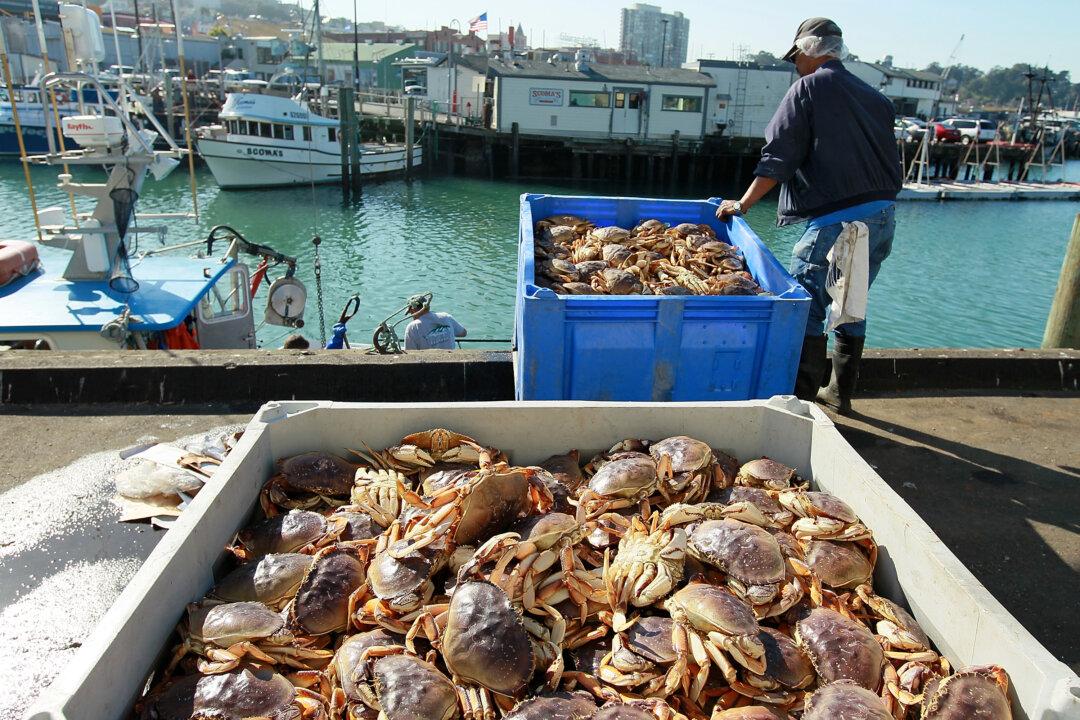Commercial crab fishing season will be delayed along most of California’s coastal regions to avoid injuries to humpback whales this winter, the state Department of Fish and Wildlife announced on Oct. 25.
The season was scheduled to open on Nov. 15 from Bodega Bay north of San Francisco to Southern California but will be delayed at least until after December, when the Fish and Wildlife director expects to take another look at whale populations along the coast.





